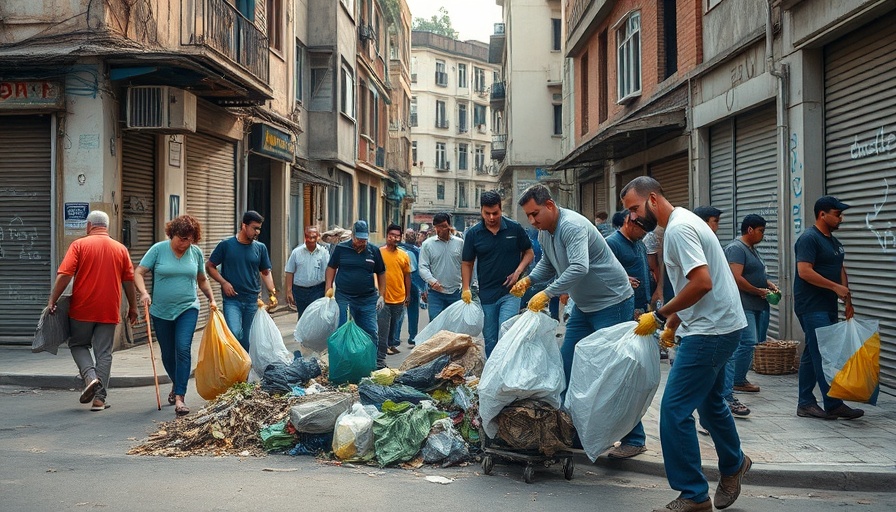
Revitalizing Johannesburg: A Valiant Government Initiative
In a pivotal move to restore the once-thriving metropolis of Johannesburg, President Cyril Ramaphosa has initiated the Presidential Johannesburg Working Group. This initiative aims to address the city’s deteriorating infrastructure and socio-economic challenges that have plagued its progress. During his meeting with the Johannesburg City Council, Ramaphosa articulated the urgent need for rejuvenation, noting the painful sight of the city, once heralded as Africa's economic powerhouse, now marred by neglect, crime, and decaying infrastructure.
A City Crying for Change
The core concern voiced by President Ramaphosa encapsulates a broader narrative regarding urban decay in South Africa. Johannesburg, a city that accounts for 16% of the nation’s GDP, finds itself at a crossroads. Issues of failing traffic systems, inadequate street lighting, and an escalating crime rate undermine its reputation as a viable center for business and living. Observations made during nighttime excursions reveal a stark reality where hope beckons through the grime and chaos of urban life.
What Will the Working Group Do?
The newly established Working Group, mirroring the successful initiatives undertaken in eThekwini, promises collaboration among various sectors, from government to civil society and the private sector. The overarching objective is clear: accelerate service delivery while ensuring financial stability and economic growth. Mayor Dada Morero, in echoing the president’s sentiments, acknowledged the city’s need for technical support and infrastructure funding. He emphasized the importance of restoring public safety through enhanced cooperation between law enforcement agencies.
Future Predictions: A Path to Resurgence?
Experts believe that the success of this Presidential Working Group could set a precedent for other ailing municipalities in South Africa. If the initiative manages to mobilize national support effectively, it could lead to long-term revitalization strategies that not only restore Johannesburg but also inspire confidence in local governance across similar urban landscapes. The historical context of Johannesburg’s past prosperity urges a renewed concerted effort to attract investments and deter the emigration of businesses seeking safer and more stable environments to flourish.
Collaboration is Key in Rejuvenating Johannesburg
This revitalization endeavor must resonate at every governance layer. The call to action is clear—critical collaboration between different government levels and stakeholders is a necessity for addressing the intertwined issues of urban decay and crime within Johannesburg. Ramaphosa's approach highlights a pragmatic recognition of the need for future political realignment, as local governance struggles under the weight of inadequate support and deteriorating electoral confidence.
What Stakeholders Have to Say
While the President's proposal is welcomed by many within Johannesburg, questions regarding sustainability and genuine commitment linger. Opposition parties have expressed skepticism, warning against potential political maneuvering as the nation approaches the 2024 general elections. John Steenhuisen of the Democratic Alliance and Julius Malema of the Economic Freedom Fighters are vocal critics, urging for transparency in how the funds allocated will be utilized and stressing the importance of maintaining checks and balances within this framework.
Implications for South Africa's Future
A politically stable and economically thriving Johannesburg is essential not only for Gauteng but for all of South Africa. The ramifications of revitalizing this metropolitan hub extend beyond municipal boundaries; they reverberate throughout the national economy. South Africa's structural challenges—youth unemployment, income inequality, and service delivery inadequacies—must be tackled head-on to restore faith in public institutions and governance.
Conclusion: A Moment Of Reckoning
As the nation stands on the precipice of change, the establishment of the Presidential Johannesburg Working Group may very well be the catalyst needed to reinvigorate trust in the government and transform Johannesburg’s socio-economic landscape. The collaboration of diverse stakeholders is crucial. As citizens and professionals alike, we must remain engaged, holding our leaders accountable while also participating actively in the envisaged transformation.
 Add Row
Add Row  Add
Add 




Write A Comment